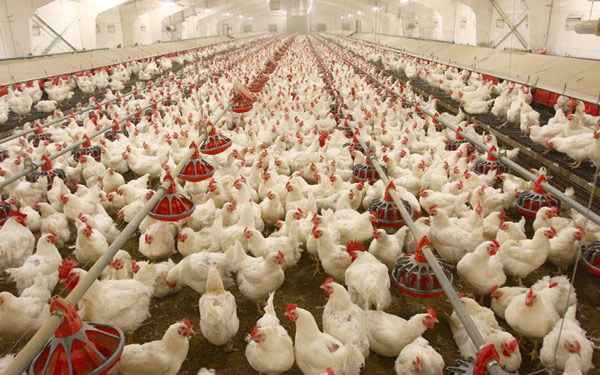Poultry Association of Nigeria (PAN), in Delta State has warned that 600 poultry farms in the state may shut down due to high cost of maize, a major component in the formulation of poultry ration.
The state chairman of PAN, Eric Tomfawei, who disclosed this yesterday in Asaba, the state capital, lamented the prohibitive cost of maize which, he said, rose by over 75 per cent from N225,000 to N405,000 per tonne.
He said despite the recent increase in maize, farmers in Delta are unable to increase prices because many farmers are already experiencing gluts in egg and broiler production.
The chairman appealed to relevant government agencies to release adequate quantities of maize from the strategic food reserve to the poultry industry at discounted rates to address the spiralling cost of maize.
“There’s also the need for the Federal Ministry of Agriculture and Rural Resources to release enough quantity of maize from the Strategic Food Reserves of the ministry to the poultry industry through the association at discounted prices to address this situation,” Tomfawei stated.
He alleged that poultry farmers are being frustrated by the Nigeria Commodity Exchange (NCX) and the Strategic Maize Reserve (SMR), of the Central Bank of Nigeria (CBN), by its cancellation of allocations of 40,000 metric tonnes of maize meant to assist poultry farmers.
Tomfawei accused officials of the Nigeria Commodity Exchange and the Strategic Food Reserve of CBN of hoarding of maize and urged President Tinubu to set up an investigative panel to get to the root of the problem.
He warned of youth restiveness in the Niger-Delta due to the hanging spectre of farm closures and the inevitability of youths in the sector being laid off, stressing that “apart from the direct impact on hunger crisis, more youths, who are engaged by the poultry industry, will be thrown back into the labour market with attendant security implication”.
He urged support for the poultry industry to prevent its imminent collapse, and warned of the country becoming a dumping ground for imported poultry products, if the right steps are not taken.











